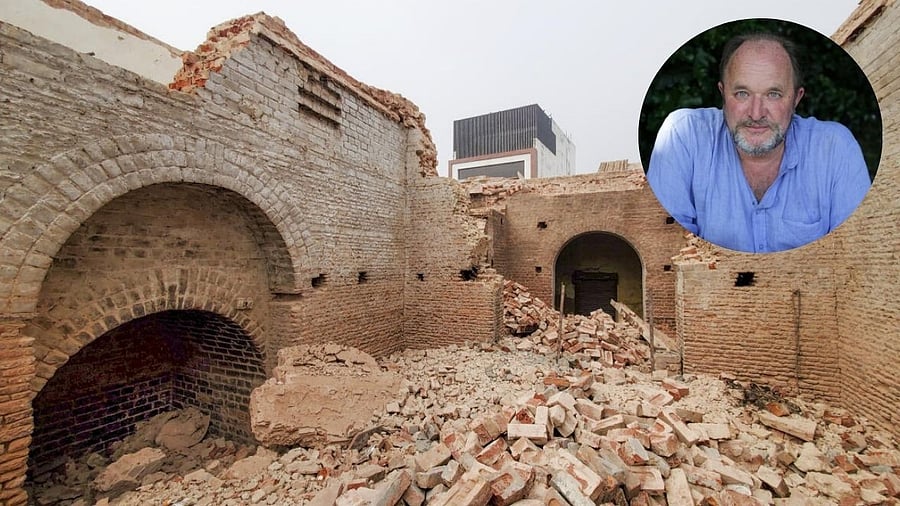
View of the partially demolished heritage site Manzil Mubarak, in Agra and Scottish historian William Dalrymple.
Credit: PTI Photo and X/@DalrympleWill
Mubarak Manzil or also known as Aurangzeb's Haveli, located in Agra, was recently demolished by a 'builder'.
The demolition of the historic haveli has sparked outrage amongst many, including famed India-based Scottish historian William Dalrymple.
Sharing images of a report by The Times Of India about the demolition on his X account, he expressed how India is destroying its appeal as a tourist destination.
"It's almost as if India is going out of its way to destroy its appeal as a tourist destination. Neglect your main heritage centres, allow developers to raze all its heritage properties, and then be surprised when this great country has less tourists than Dubai or Singapore," Dalrymple wrote.
In a following post, Dalrymple explicated why India is attracting less tourists.
"More appalling negligence of India's Heritage-One of the most important historic buildings in Agra destroyed with the full connivance of the authorities. This is exactly why India attracts so few tourists," he wrote.
The heritage site is said to have been the residence for many Mughal emperors like Shah Jahan, Shuja and Aurangzeb, to name a few.
Later during the British rule, Mubarak Manzil was modified and converted to a customs house salt office.
As per another report by the TOI which cited locals, it appears that the builder demolished the heritage building even after some officials visited the site to initiate measures to preserve it.
The report also quoted a local resident saying that he did file a complaint regarding the demolition. However, no action was taken.
The national general secretary of the Tourist Guide Federation of India, Shakeel Chauhan also spoke on the negligence.
"The Centre envisions making tourism a $1 trillion ecosystem with 100 million international tourist arrivals by 2047, but neglect towards heritage sites undermine this goal. Mubarak Manzil is not an isolated incident," TOI quoted Chauhan.
